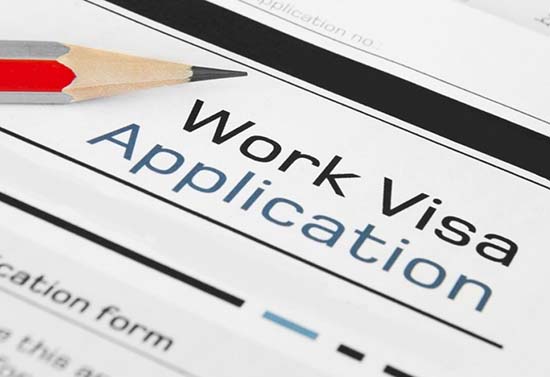Advertisements
Canada is known as the “land of opportunity,” drawing visitors from all over the world with its dynamic culture, varied scenery, and robust economy. If you’re thinking of working in Canada, it’s critical to comprehend the many work permits and restrictions depending on your standing and profile. Whether you’re a tourist, an international student, or want to work in Canada, this guide will assist you in finding your first job.
How To Work According To Your Status
It’s crucial to check your work permit and visa first. Based on your experience and current profile, you could be able to work in particular situations. Depending on your specific situation, you may be eligible for a different kind of work permit depending on your status:
Working Under A Study Permit:
The chance to work while studying can be a beneficial experience for international students enrolled in Canadian universities. In order to accomplish this, a condition on your study permit must specifically permit you to work both on and off campus. In the following situations, working without a separate work permit is permissible:
On-campus employment: If you are enrolled full-time at a public post-secondary institution, you are permitted to work on the school’s campus without a work permit. This covers CEGEP in Quebec as well as trade or technical schools, colleges, and institutions.
Studying at a private post-secondary institution in Quebec that abides by the same regulations as public universities permits you to work both on and off campus.
Attestation of Vocational Specialization (AVS) or Diploma of Vocational Studies (DVS): You are eligible to work without a work permit if you complete qualifying programs lasting 900 hours or more at a private or public secondary or post-secondary school in Quebec.
Working Under An Open Work Permit
For non-natives, an open work permit is a flexible alternative. For a set amount of time, it lets you work for any employer in Canada. Open work permits, on the other hand, are only granted in certain situations, such as those involving the Labour Market Impact Assessment (LMIA) exemptions. Open work permits come in two varieties:
Unrestricted open work permits: These permits give you more freedom because they don’t have any restrictions on your profession or place of residence.
Open work permits with restrictions: Depending on your work permit type or health status, these permits may have limitations. Depending on the type of work permit, such as the provincial nominee class, there may be location limits.
Working With a Work Permit Specific to Your Employer
You might require an employer-specific work visa if you have received a specific job offer in Canada. A copy of your employment contract, an LMIA, or, for LMIA-exempt individuals, an offer of employment number, must be given to you by your employer in order for you to receive one. With this kind of authorization, you can work in Canada as long as you follow the guidelines on your work permit. The document also contains the name of the employer, the length of employment, and the location (if relevant).
Working with a Tourist Visa
It is crucial to understand that you cannot work in Canada on a visiting visa. It is forbidden to engage in commercial activities that directly enter the Canadian labor market. You can, however, apply for a work permit while still in Canada if you are a guest and have received a legitimate job offer.
Advertisements
Working Under ETA
While an ETA is necessary for flying travel into Canada, it does not provide permission to work or study there. Prior to your travel, you must apply for a separate work permit or study permit if you want to work or study in Canada. You will automatically receive an ETA if your permission is accepted. This is necessary in order for you to board your aircraft to Canada.
As you can see, it is important to comprehend the particular legislation and work permissions that are relevant to your situation. A seamless transition into the Canadian workforce is ensured by adhering to the proper procedures and obtaining the required permits, regardless of whether you are an international student, a visitor with a job offer, or someone looking for employment in Canada.
Job Application Documents in Canada
Now that you are more aware of the different kinds of work permits that are available in Canada depending on your circumstances, let’s look at the crucial paperwork you will require when applying for your first job in this nation.
Social Insurance Number
Foreign workers must also have a Social Insurance Number (SIN), which is an essential identity number for all Canadians. It is made up of a special nine-digit code that is required to access government benefits and programs in addition to being employed. Take the following actions to get your SIN:
Apply online at the official website of the Government of Canada.
Select “First Social Insurance Number” from the menu that drops down.
Complete the required form, making sure to attach digital copies of your original paperwork as well.
Your SIN will usually arrive in the mail in 15 days.
Labour Market Impact Assessment (LMIA)
As a foreign worker, you are not individually required to obtain a Labour Market Impact Assessment (LMIA), but prospective employers may request one when recruiting foreign workers. An LMIA simply demonstrates that there is a genuine need to hire foreign workers for particular positions and that there are no Canadian candidates who meet the requirements to fill those positions.
Resume
It is essential to write a resume that follows Canadian standards and is well-structured before applying for any job in Canada. The following elements are usually highlighted in Canadian resumes:
Emphasize your skills that are relevant to the position you are looking for. Make sure your resume is appropriate for the post by tailoring it for each job application.
Education: Provide specifics about your school history, such as degrees, certificates, or other credentials that are pertinent to the position.
Work Experience: Give a detailed account of your previous employment, emphasizing positions that are comparable to the position you are applying for. Emphasize your experience and skills, making sure they match the job description.
Transferable Skills: Place a strong emphasis on abilities that are useful in a Canadian workplace and are flexible.
Clarity and Readability: Make sure your resume is well-structured, and make sure the language is simple to comprehend. Make it easier to read and more accessible for prospective employers by using bullet points.
How To Avoid Jobs Scams
The most prevalent type of job offer fraud entails receiving payment for help in locating a fictitious position. you a guaranteed job offer, fraudulent immigration services may ask you anywhere between $2,000 and $200,000. Employers usually pay a recruiter or agency to locate employees. Never give money to a recruiter in order to get a job offer in Canada. Usually, dishonest recruiters are looking for your money or personal information; avoid giving them either! Never divulge social security numbers, banking information, or personal details. First and foremost, it’s critical to understand that accepting payment in exchange for a job offer letter or a Canadian employment is against the law. A valid letter of employment offer should have the company’s contact details and official letterhead.
Where To Find Jobs
Finding employment prospects as a new immigrant to Canada is made easier with the aid of numerous job listing websites and online job boards that support people just like you in their job quest. Here is a selection of trustworthy websites where you can look through Canadian job listings:
Job Bank Canada: This official website is a great resource that offers a large database of job postings from Canadian firms. It’s a great place to start your job search.
Indeed: This is a well-known international job search engine that offers a wide variety of job ads in an approachable format, including roles that are appropriate for novices.
LinkedIn: You may browse job postings, get in touch with recruiters, and grow your professional network by using the job search option on this professional networking site.
Glassdoor: In addition to job postings, this website provides crucial information on salaries and company reviews to help you make well-informed decisions about possible employers.
Government Websites: A lot of the websites run by the provincial and territory governments have job boards specifically for immigrants as well as other resources that provide useful information about jobs in the area. The Hiring Programs for Students page is one of them.
Conclusion
A critical first step in your job hunt is writing a resume in the Canadian format. You will greatly increase your chances of getting a job interview and, eventually, landing a job by tailoring your CV to Canadian standards and employer preferences. Remember that your CV represents your first impression of the Canadian employment market, so take the time to make it shine. Wishing you luck as you look for work in Canada!
References
https://www.jobbank.gc.ca/findajob
Indeed.ca.com
https://www.canada.ca/en/services/jobs/opportunities/student.html
Advertisements





